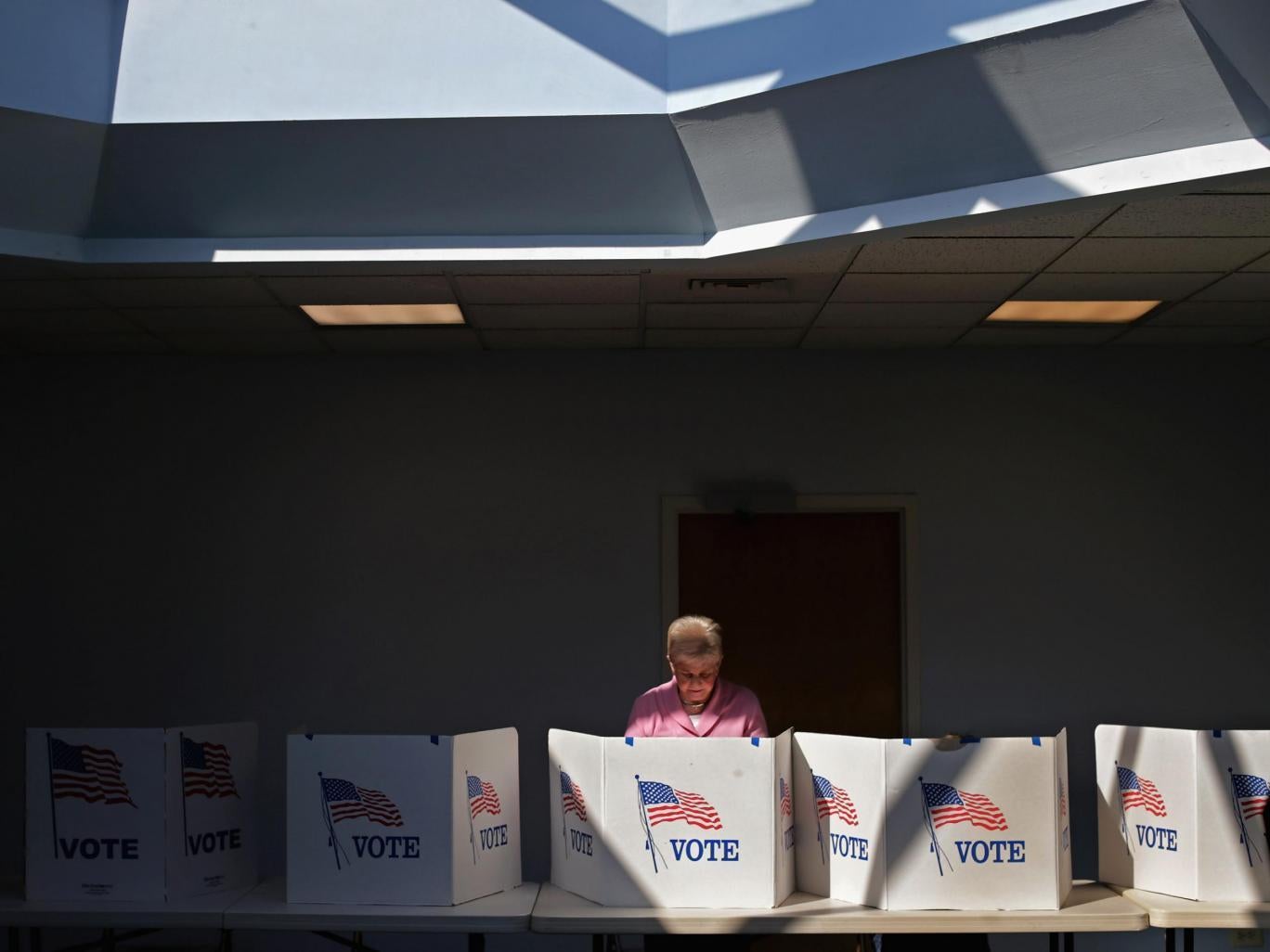US democracy has exposed its huge flaws, whoever wins this race for the White House
Dominated by ideological obsession overlaying traditional sectional and geographical interests, Congress looks less fit for purpose than ever

As if anyone, either in America or around the world was ever in any doubt, the US elections prove once again that the greatest democracy on earth is also one of the most bitterly divided.
We know that voting in these elections, perhaps more than any over recent decades, was determined quite starkly on the grounds of race, education and economic prosperity. If you happen to be a well-educated woman of colour, or if you happen to be a white unemployed ex-coal miner, your vote is more predictable than for a long time.
“Reaching out” is what American politicians tend to speak of, but the truth is that they have to reach out to only a few. The number of “swing states” and, within them, swing districts and counties is smaller than ever it was.
The election of 2000, in which Al Gore won the popular vote but so narrowly lost the White House on the way votes turned in a few square miles of Florida, was an omen of closer elections to come. For Americans who live in that state, in North Carolina, in Michigan, in Arizona, in Iowa and in a few more places – and the more marginal polling districts within those states – the Democrats and the Republicans can barely leave you alone. If you don’t happen to live in a marginal “toss-up” state, say if you are in Wyoming (Republican) or Washington DC (Democrat), then no one will pay you very much attention.
This polarisation is reflected elsewhere in the American body politic. In the Senate, just a few seats can make the difference between an active administration that can get things done at home and abroad, and one that cannot.
Such is the modern day partisanship evident in both houses. The old arrangements “across the aisle” that could see federal budgets and international treaties passed, albeit with an element of the pork barrel about them, are unlikely to reassert themselves (although the April’s agreement on climate change was a welcome exception). It means that America – a land that the world still looks to as to a beacon on a hill – is gripped by stasis rather than being a dynamic engine of reform and change.
Dominated by ideological obsession overlaying traditional sectional and geographical interests, Congress looks less fit for purpose than ever. Even the Supreme Court, by dint of overly partisan appointments by successive presidents, rests on a knife edge between liberalism and literalism.
The language and events of the 2016 contest give little cause for hope for those who wish to see America come together to sort out its issues. Sometimes, and rightly, held up as an example of how to engage sometimes apathetic voters in the democratic process, the most recent exercise gave us two candidates who were astonishingly unpopular, even among many of their respective parties’ traditional loyalists, let alone the political establishment. When so many voters wished that Hillary and Donald could both lose, something is wrong with the system.
The Republican Party in particular has ceased to look or sound very much like the nation it purports to lead. The role of money, too, has distorted the democratic choice, though less grotesquely this time round.
The health of American democracy matters to the rest of the world, not least because it was American democracy that, on more than one occasion, has secured democracy elsewhere in the world. Americans may tire of foreigners lecturing them about their foreign policy and suggesting how they should vote in their own elections, yet what America does, which battles it chooses to fight and how it fights them, affects everyone else in the world.
The US dollar, as the world’s major reserve currency, in a sense belongs to everyone, though only the Fed and the US Treasury control its supply. Americans acknowledge the interest and concern that has been demonstrated around the globe in the recent political contest. The rest of the world must be reassured, a little, that so many Americans also recognise the gravity of the problems their nation faces.
Join our commenting forum
Join thought-provoking conversations, follow other Independent readers and see their replies
Comments
Bookmark popover
Removed from bookmarks